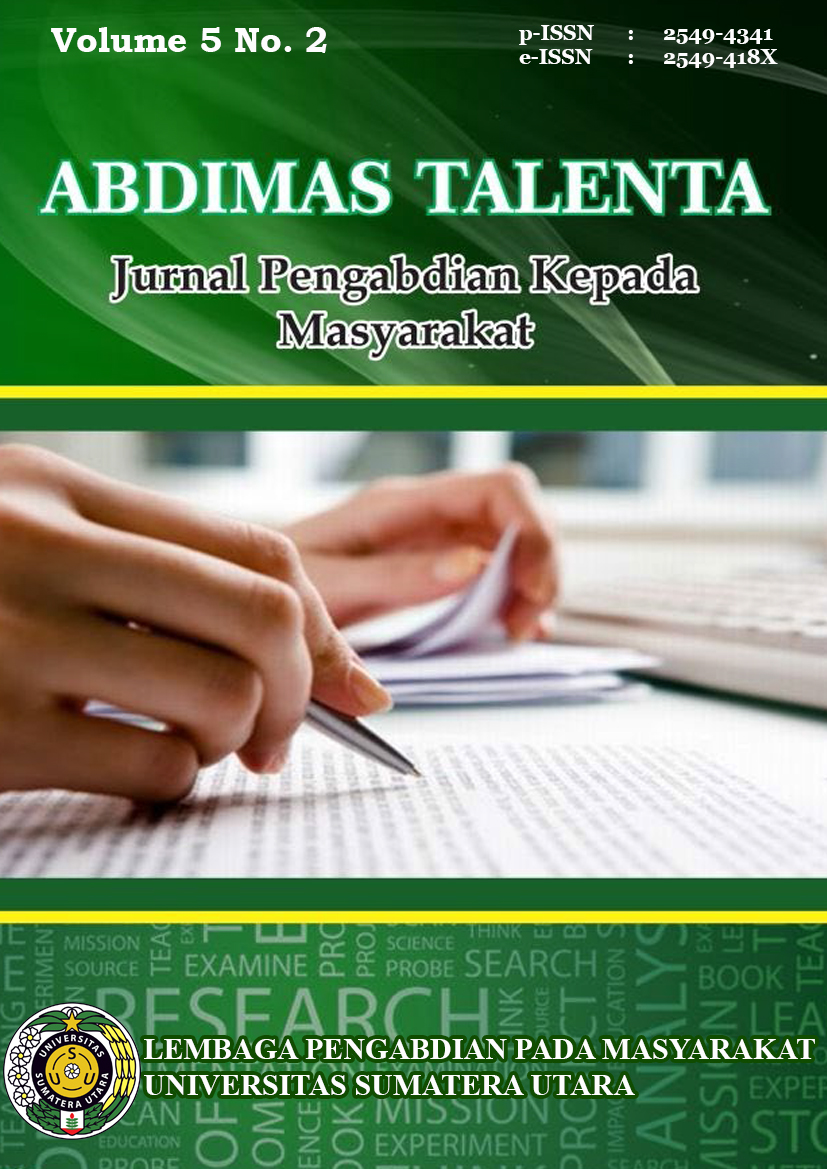Paving Block and Canopy Development of "Sweembath" Tourism Village Realizing Community Welfare
DOI:
https://doi.org/10.32734/abdimastalenta.v5i2.5177Keywords:
baths, survey , promotion, facilitiesAbstract
The Sweembath Bahapal baths were built in 1930 by the Dutch government by employing plantation workers. This bathhouse was used as a place of entertainment by the Dutch. Currently, the management of the Sweembath tourism area has been handed over to the local community as the manager of village tourism. The preliminary survey shows the need for further development so that it is expected to improve the welfare of rural communities. Some of the problems that arise are related to the availability of infrastructure and facilities, as well as lack of promotion, which are inhibiting factors for the development of this tourism potential. The objective of the development of the Naga Sopa "Sweembath" Tourism Village, Bandar Huluan District, Simalungun Regency is to create community welfare. These are: Repairing road structuring facilities in the sweembath tourist area to increase the number of tourism visits that can improve the welfare of the community. The results of the activities carried out by USU's LPPM were road arrangement (paving blocks) and construction of a canopy.
Downloads
Downloads
Published
Issue
Section
License
Copyright (c) 2020 ABDIMAS TALENTA: Jurnal Pengabdian Kepada Masyarakat

This work is licensed under a Creative Commons Attribution-ShareAlike 4.0 International License.
The Authors submitting a manuscript do so on the understanding that if accepted for publication, copyright of the article shall be assigned to Jurnal Abdimas TALENTA as well as TALENTA Publisher Universitas Sumatera Utara as the publisher of the journal.
Copyright encompasses exclusive rights to reproduce and deliver the article in all forms and media. The reproduction of any part of this journal, its storage in databases and its transmission by any form or media, will be allowed only with written permission from Jurnal Abdimas TALENTA.
The Copyright Transfer Form can be downloaded here.
The copyright form should be signed originally and sent to the Editorial Office in the form of original mail or scanned document.












